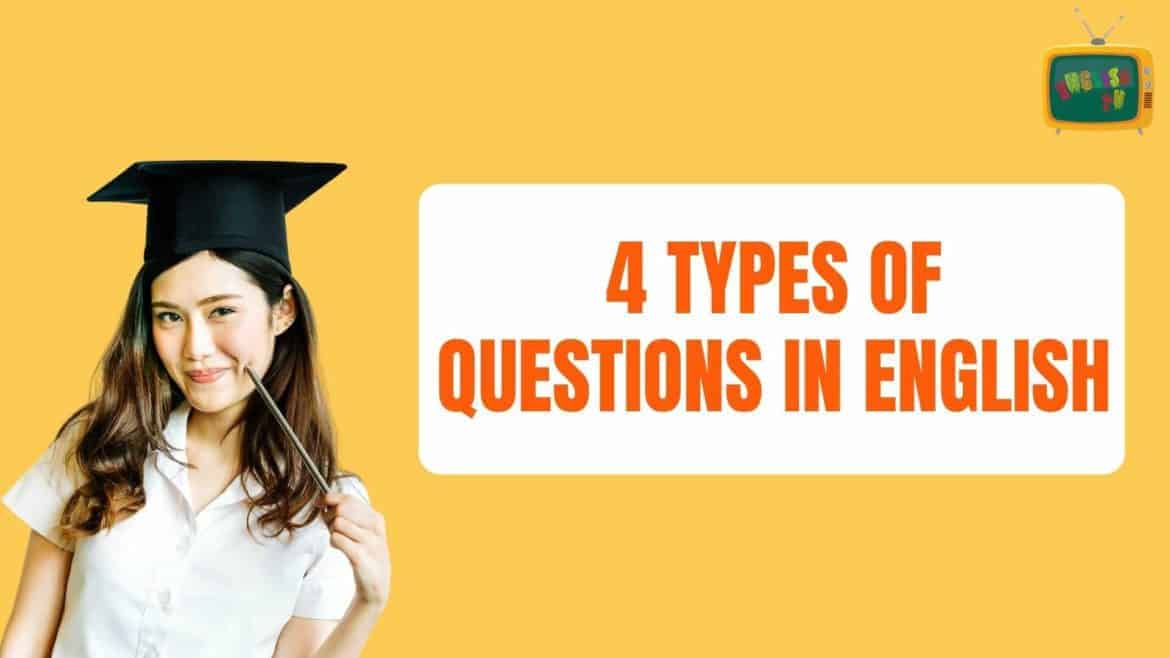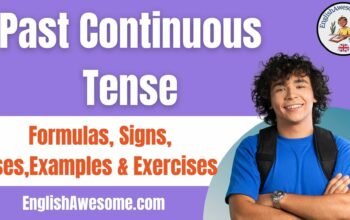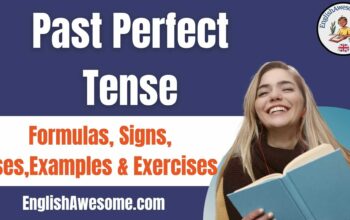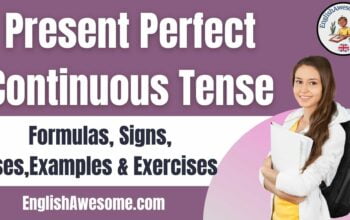What are the 4 types of questions in English? English has 4 types of questions that have different functions and purposes. In a question, the auxiliary verb or the verb “to be” always comes before the subject. If there is no auxiliary verb or the verb “to be”, we must use the form “do, does, did” as an auxiliary verb instead. After those verbs or auxiliary verbs, the main verb must be used in the infinitive form without “to”. The question tense and form are only conjugated by the auxiliary verb, not the main verb.
⏩ Sign Up to Get Bonus
Let's learn with English tivi to learn the English questions types.
See more at: English Grammar
General or Yes/No Questions in English
Yes/No questions are the simplest to answer. They are also used to get information from the person being interviewed. The answer is either yes or no.
Yes/No questions structure:
| Auxiliary verb (be / do, does, did) + S + verb + ….? – Yes, S + auxiliary verb/ to be – No, S + auxiliary verb/ to be + not. |
The following are some examples of Yes/No Questions:
+ Are you a student?
+ Do you want to go out tonight?
+ Is your name John?
+Are you happy with your current job?
Note: For Yes/No questions, we don't necessarily have to answer with Yes/No.
Example: Do you want to go now? -> Wait for me some minutes.
Information Question in English
The question is a request for information. It is a request that is made of another person or entity to provide information, such as the answer to a question, or an explanation of something.
For this type of question, the answer cannot be “Yes” or “No”. We divide it into three categories:
Questions with Who or What: Subject Question
Information Question structure: This is the question when you want to know the subject or subject of the action.
| Who/ What + V + …? |
+ Something happened last night => What happened last night?
+ Someone opened the door. => Who opened the door?
Questions with Whom or What: Object Question
These are questions used when you want to know the object or object of the action
| Whom/ What + (do/does/did) + S+ V + …? |
Note: Remember that in written English it is mandatory to use whom, although in spoken English it is possible to use who instead of whom in the above sentence pattern.
+ George bought something at the store. => What did George buy at the store?
+ Ana knows someone from UK. => Whom does Ana know from UK?
When, Where, How and Why: Complementary Questions
Use when you want to know the place, time, reason, way of action.
| When/ where/ why/ how + be, do, does, did + S + V + ….? |
+ How did Maria get to school today?
+ When did he move to London?
+ Why did she leave so early?
Embedded Question in English
A sentence or question that contains within it another question. This type of question consists of two components connected by a question word. The verb in the second clause (interrogative clause) must go after and be conjugated according to the subject, not inverted as in the independent question.
| Auxiliary verb + S + V + question word + S + V |
+ Do you know where he went?
+ Could you tell me what time it is?
Question word can be a word, can also be a phrase such as: whose + noun, how many, how much, how long, how often, what time, what kind.
+ Do you know how often the bus runs at night?
+ Can you tell me how far the museum is from the store?
Tag Questions in English
In a tag question, the questioner gives a statement (main clause) but is not completely sure about the truth/falseness of that statement, so they use this type of question to test the given statement. out.
+ He should stay in bed, shouldn't he?
+ She has been studying English for two years, hasn't she?
+ There are only twenty-eight days in February, aren't there?
+ It's raining now, isn't it?
+ You and I talked with the professor yesterday, didn't we?
+ You won't be leaving for now, will you?
+ Jill and Joe haven't been to Japan, have they?
The tag question is divided into two components separated by commas according to the following rule:
– Use the same auxiliary verb as in the main clause to make the question tail. If there is no auxiliary verb, use do, does, did instead.
– If the main clause is in the affirmative, the tail is in the negative, and vice versa.
– The tense of the verb in the tail must follow the time of the verb in the main clause.
– The subject of the main clause and of the binary part is the same. Pronouns at the end must always be in the form of the subject.
– The tail, if in the negative form, is often shortened (n't). If not abbreviated, the order must be: auxiliary verb + S + not?
Example: He saw it yesterday, did he not?
– The verb “have” can be the main verb or an auxiliary verb. When it is the main verb of the clause in American English, the ending must use the auxiliary do, does, or did. However, in British English, you can use “have” itself as an auxiliary verb in this case.
+ You have got two children, haven't you? (British English)
+ You have two children, don't you? (American English)
– “There is, there are” and “it is” are dummy subjects, so the ending can be reused there or it like in the case of the subject pronoun.
You might also like: ALL the English Grammar Basics You Need
Types of Questions in English Exercise
1:______did the writer feel? Angry.
A. What
B. How
C. Why
D. When
2: ______did Aunt Lucy come? By train.
A. How
B. When
C. Why
D. Where
3: ______him a few words of Italian? The waiter.
A. Who did teach
B. Who taught
C. Whom did he teach
Question 4: No one died in the accident,______?
A. didn’t they
B. didn’t he
C. did they
D. did she
5: This is the second time she has been here,______?
A. has she
B. hasn’t she
C. isn’t this
D. isn’t it
6: You have a ticket to the game,______?
A. do you
B. haven’t you
C. don’t you
D. have you
7: She’s definitely not coming,______?
A. isn’t she
B. is she
C. hasn’t she
8: You wouldn’t report me,______?
A. wouldn’t you
B. would you
C. do you
9: ______is the weather like today?
A. How
B. When
C. What
10: It won’t hurt, ______?
A. won’t it
B. will not it
C. will it
11: Are you from Germany?
A. Yes, I am from Germany.
B. Yes, I am.
C. No, I am from Germany.
12: Has your sister got a car?
A. No, she has not.
B. No, my sister has not got a car.
C. No, my sister has not.
13: you / live in a big city?
A. Has you live in a big city?
B. Did you live in a big city?
C. Do you lived in a big city?
Question 14: Will she send us a mail?
A. Yes, She will send.
B. Yes, we will be sent.
C. Yes, she will.
15: you/ tired?
A. Did you tired?
B. Are you tired?
C. Do you tired?
16: Can you play football?
A. No, I can.
B. No, I cannot.
C. No, I can’t.
D. Both B and C
17: she / listen /to the radio / now?
A. Is she listening to the radio now?
B. Has she listening to the radio now?
C. Do she listening to the radio now?
18: “When will dinner be ready?” -> I would like to know______?
A. when will dinner be ready
B. when dinner would be read
19: How do you use this software? -> Do you know_____?
A. how you use this software
B. how to use this software
C. how this software uses
20: “Where can I get my car fixed?” -> Excuse me, could you tell me_____?
A. where I can get my car fixed?
B. where I could get my car fixed?
You might also like: What is a Pronoun? All you Need to Know
Types of Questions in English Exercise Answers
| 1) B | 2) A | 3) B | 4) C | 5) D |
| 6) C | 7) B | 8) B | 9) C | 10) C |
| 11) B | 12) A | 13) B | 14) C | 15) B |
| 16) D | 17) A | 18) B | 19) B | 20) B |
Subscribe to the English tivi channel on Youtube to improve your English learning skills!





